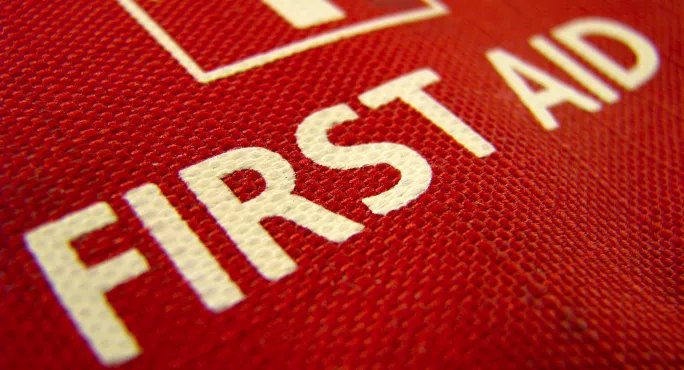Imagine the scene. It’s a “fright night” at school. Hundreds of excited teenagers, costumes on, lights off, risk assessments completed.
What could possibly go wrong? Well, potentially, quite a bit.
Pupils often experience panic attacks, seizures or even just bumps and scrapes. Nine times out of 10 a staff member is on hand and the condition is minor.
But what if it’s not? What if it’s a case of first aid being required immediately and the pupil’s contemporary is the only one close enough to make sure that their friend’s head won’t crash against a hard surface if they are having an attack? Or perhaps someone has fainted and is in danger of swallowing their tongue?
Quick read: School CPR lessons ‘could triple survival rate’
Background: ’Every school should have a defibrillator’
First aid: ‘Teaching first aid in primary schools could save lives’
A pupil’s story: Boy who saved mother backs school first-aid call
Immediate, and correct, application of the recovery position could really make the difference between life and possibly death. It could be something as simple as knowing whom to call.
The key is understanding what to do and when. Just a simple few steps could make all the difference and possibly it could be children who will have to act as the on-site rapid-response unit, wherever the emergency.
First-aid training at school
Compulsory first-aid training at senior school level is under consideration by the Scottish government. Campaigning by pupils and St Andrew’s First Aid chief executive Stuart Callison has taken place at the Scottish Parliament. Their plea for action has been endorsed by the British Heart Foundation, which recently stated, bluntly, that CPR (cardiopulmonary resuscitation) training in secondary schools had the “potential to save thousands of lives”.
But perhaps we’re missing a trick here. Last month, our school’s junior years were lucky enough to benefit from a first-aid training session, not from a medical professional with years of coalface experience, but from an 11-year-old pupil at the school, passionate enough about her subject to have become an Order of St John youth ambassador.
Her mum is a former acute coronary care nurse and dad a consultant neurologist, so matters medical are very much in the family’s way - even their five-year-old is proficient in the art of correct first-aid procedure.
However - and here’s the conundrum - I watched her classmates quickly understand, and perfectly utilise, defibrillators; give mouth-to-mouth resuscitation; apply a tourniquet, and more. And I was struck by their huge capacity to learn and the sheer fearlessness at such a young age.
“Children are quite able to conduct, or guide an adult through, resuscitation techniques,” the girl’s mum told me. “Children from 6 or 7 are perfectly capable of performing vital first-aid response tools.”
Our school’s in-house nurse, a chronic asthma sufferer herself, was recently saved by the actions of a friend who knew exactly what to do when an encounter with an over-chlorinated hot-tub ignited an attack. Correct CPR techniques kept her alive for 40 minutes before the ambulance arrived.
In 2020 we’ll see the arrival of a new defibrillator at our school, with all senior pupils and staff being trained in its use. But is this enough? Perhaps we should aim higher - or younger - and look to our primary school pupils to press ahead with saving lives.
Dorothy MacGinty is head of Kilgraston School in Perthshire, Scotland





